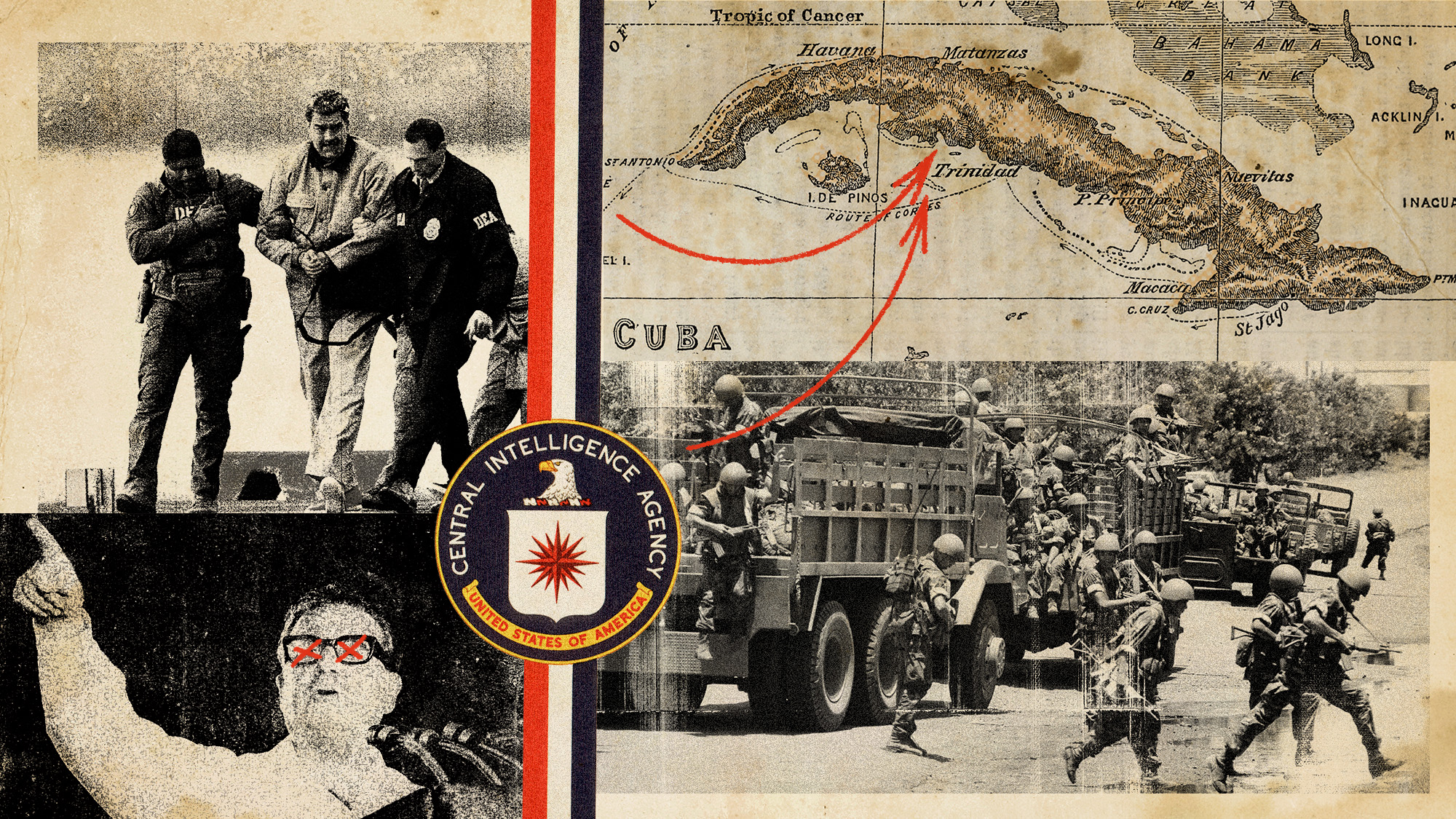Can populist conservatives and liberals form an uneasy alliance over Ukraine?


A free daily email with the biggest news stories of the day – and the best features from TheWeek.com
You are now subscribed
Your newsletter sign-up was successful
The loudest voices warning against American military involvement if Russia invades Ukraine belong to populist conservatives. On his nightly Fox News show, Tucker Carlson regularly demands an explanation of what vital U.S. interest is served by intervening in the conflict. "We have no dog in the Ukraine fight. Not one American soldier should die there, and not one American bullet should be fired there," said Rep. Paul Gosar, a controversial Arizona Republican. Hillbilly Elegy author and Ohio GOP Senate candidate J.D. Vance tweeted, "Billions spent on the Kennedy School, grand strategies seminars, and the Georgetown School of Foreign Service has bought us an elite that's about to blunder us into a Ukraine war."
When Sen. Rand Paul (R-Ky.), the type of libertarian-leaning conservative one can usually count on to balk at foreign military adventures, wrote that "Ukraine should not and cannot be our problem to solve," Rep. Matt Gaetz (R-Fla.) tweeted simply, "Agree!"
These Republicans and their allies tend to be close to former President Trump, or at least his attempted redefinition of the party's priorities. They may, for that reason, be able to reach the GOP rank-and-file in a way the party's intervention skeptics have sometimes struggled to do in the past.
The Week
Escape your echo chamber. Get the facts behind the news, plus analysis from multiple perspectives.

Sign up for The Week's Free Newsletters
From our morning news briefing to a weekly Good News Newsletter, get the best of The Week delivered directly to your inbox.
From our morning news briefing to a weekly Good News Newsletter, get the best of The Week delivered directly to your inbox.
But that could also make it harder to have the kind of left-right coalition that existed at the margins of the Iraq war debate and passed a resolution to stop U.S. involvement in the war in Yemen. Trump vetoed it, but top allies like Rep. Jim Jordan (R-Ohio) and then-Rep. Mark Meadows (R-N.C.), his final White House chief of staff, voted with Congress' leading progressives to advance the measure.
Progressives never liked Trump, and they like Republicans who continue to defend "the former guy" after the Jan. 6 Capitol riot even less. Liberal attitudes about Russia hardened after the Kremlin's election interference in 2016, though the most extreme reactions to this meddling were practically in "stop the steal" territory.
"We need to stop calling this 'isolationism,'" liberal Washington Post blogger Greg Sargent wrote. "Tucker is pulling the GOP base toward Putinism."
The U.S. probably won't end up at war over Russia-Ukraine this time around, though escalation begets more escalation. If Ukraine joined NATO, the risk would increase. Could populists and progressives work together to stop it? Early results aren't encouraging.
A free daily email with the biggest news stories of the day – and the best features from TheWeek.com
W. James Antle III is the politics editor of the Washington Examiner, the former editor of The American Conservative, and author of Devouring Freedom: Can Big Government Ever Be Stopped?.
-
 Political cartoons for February 16
Political cartoons for February 16Cartoons Monday’s political cartoons include President's Day, a valentine from the Epstein files, and more
-
 Regent Hong Kong: a tranquil haven with a prime waterfront spot
Regent Hong Kong: a tranquil haven with a prime waterfront spotThe Week Recommends The trendy hotel recently underwent an extensive two-year revamp
-
 The problem with diagnosing profound autism
The problem with diagnosing profound autismThe Explainer Experts are reconsidering the idea of autism as a spectrum, which could impact diagnoses and policy making for the condition
-
 ‘The mark’s significance is psychological, if that’
‘The mark’s significance is psychological, if that’Instant Opinion Opinion, comment and editorials of the day
-
 Big-time money squabbles: the conflict over California’s proposed billionaire tax
Big-time money squabbles: the conflict over California’s proposed billionaire taxTalking Points Californians worth more than $1.1 billion would pay a one-time 5% tax
-
 Did Alex Pretti’s killing open a GOP rift on guns?
Did Alex Pretti’s killing open a GOP rift on guns?Talking Points Second Amendment groups push back on the White House narrative
-
 Washington grapples with ICE’s growing footprint — and future
Washington grapples with ICE’s growing footprint — and futureTALKING POINTS The deadly provocations of federal officers in Minnesota have put ICE back in the national spotlight
-
 Trump’s Greenland ambitions push NATO to the edge
Trump’s Greenland ambitions push NATO to the edgeTalking Points The military alliance is facing its worst-ever crisis
-
 Why is Trump threatening defense firms?
Why is Trump threatening defense firms?Talking Points CEO pay and stock buybacks will be restricted
-
 A running list of the international figures Donald Trump has pardoned
A running list of the international figures Donald Trump has pardonedin depth The president has grown bolder in flexing executive clemency powers beyond national borders
-
 A running list of US interventions in Latin America and the Caribbean after World War II
A running list of US interventions in Latin America and the Caribbean after World War IIin depth Nicolás Maduro isn’t the first regional leader to be toppled directly or indirectly by the US
